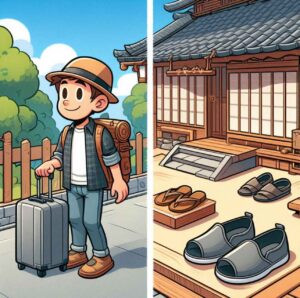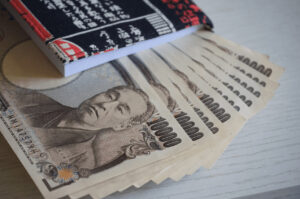
Essential Tips for a Memorable Trip
Are you looking for Japan travel tips for your future trip to Japan? Today, you will discover helpful ones to help you make the most of your journey, from budgeting and transportation to food and culture. Learn how to get around with our simplified guide to Japanese travel.
Embarking to Japan is like entering a magnificent kingdom, where age-old customs seamlessly blend with cutting-edge advancements. If you’re eager to explore this enchanting land, you’re probably wondering how to make the most of your adventure and respect local traditions. Worry not, for we’ve got you covered! Below are some savvy tips to help you travel like a pro and create memories that will last a lifetime.
Planning and booking tickets.

Planning and booking your tickets and experiences is highly recommended if you’re considering traveling to Japan. Remember that certain bookings may only be available a month before your desired date, so keep track of the dates and availability accordingly. Searching in some Japanese websites can be challenging, mainly when using foreign cards. External platforms such as Klook and other apps can prove exceptionally helpful in such scenarios. Klook provides various activities and experiences in Japan at discounted rates. Furthermore, you can peruse reviews from other travelers and receive instant confirmation for your bookings.
Pack light and bring shoes that are easy to slip on and off.
Another essential Japanese travel tip is to pack light and get shoes that are easy to slip on and off. Hotel rooms in Japan are small, especially in cities, so there needs to be more space for large suitcases. Plus, you will have to carry your luggage on public transport, which can be crowded and inconvenient. Packing lights will make your trip more accessible and more comfortable.

You will also need shoes that are easy to slip on and off, as you must take them off frequently at religious sites, traditional inns, and some restaurants. You will be provided with communal slippers to wear inside, so it is advisable to wear socks as well. Taking off your shoes is a sign of respect and cleanliness in Japan, so follow this custom.
Get a JR Pass before you travel around Japan.

One of the best Japan travel tips is getting a JR Pass if you plan to travel by train. The JR Pass is a special ticket that allows you to use the Japan Railways network, including the famous bullet trains, for a fixed period. You can pick from 7, 14, or 21-day passes depending on your itinerary. The JR Pass can spare you bucks and hassle, as train tickets in Japan can be expensive and complicated. However, you must order your JR Pass online before arriving in Japan. You will receive an exchange order that you need to present at a JR office in Japan to get your actual pass.
Learn the basic Japanese.

Learning basic Japanese greetings and expressions of gratitude can make a big difference in a country as polite and respectful as Japan. To help you navigate social interactions with ease, we recommend adding a few key phrases to your vocabulary:
- Please- Onegaishimasu / おねがいします / お願いします
- Please wait a moment- Chotto matte kudasai / ちょっと まって ください / 少々 待って 下さい
- Thank you- Arigatou gozaimasu / ありがとう ございます / ありがとうございます
- You are welcome- Douitashimashite / どういたしまして / どう致しまして
- Excuse me/ Sorry- Sumimasen / すみません / すみません
- The bill please-Okaikei onegaishimasu / おかいけい おねがいします / お会計 お願いします
It’s worth noting that only some people in Japan speak English, so having a translation app on hand can be a lifesaver.
Respect the local culture and traditions.

Japan has a long and rich history, and many traditions and customs are still alive today. As a visitor, you should respect the local culture and try to follow the rules and expectations of the Japanese people. Some of the things you should do are:
- Dress appropriately. Japan is a country with a strong sense of modesty, so it is best to avoid caution when choosing your clothing. It would help if you also covered your tattoos, as they are associated with the yakuza (Japanese mafia) and might not be allowed in some places, such as hot springs or public baths.
- Be quiet. Avoid making loud noises or talking on your phone in public places, such as trains, buses, temples, or museums as Japan is a calm country. You should also turn off your phone or put it on silent mode when entering these places.
- Be punctual. Always be on time for your appointments, meetings, or tours as Japan values punctuality. Being late is considered rude and disrespectful in Japan, so you should plan and leave enough time for transportation and unexpected delays.
- Be polite. Always use the proper honorifics and titles when addressing someone, such as -san, -sama, -kun, or -chan. It would help to avoid direct eye contact, as it can be seen as aggressive or challenging in Japan.
Keep in mind the etiquette rules.
- Bowing is a way of greeting, thanking, apologizing, or showing respect in Japan. The deeper the bow, the more respectful it is. You should slightly bow when meeting someone or receiving something from them.
- Chopsticks are the primary utensils in Japan, so you should learn how to use them properly. Some things you should avoid doing with chopsticks are sticking them upright in your food (this is a funeral ritual), passing food from chopstick to chopstick (this is also a funeral ritual), pointing with them, or leaving them crossed on your plate.

- Slurping your noodles or soup is considered polite and complimentary in Japan, as it shows you enjoy your food. Be bold enough to slurp when eating ramen or udon.
- Tipping is not expected or required in Japan, as service charges are usually included in the bill. Tipping can be seen as rude or insulting, implying the service was not good enough. If you want to show appreciation, you can say “gochisousama deshita,” which means “Thank you for the meal.”
Prepare for your adventure.
If you plan a trip to Japan, prepare for an exciting, action-packed adventure. This beautiful country has impressive attractions, from historic landmarks like castles and shrines to modern marvels like skyscrapers and museums. However, be prepared to do a lot of walking if you want to see it all – a typical day of sightseeing can easily involve covering 25,000 steps or more. So, wearing comfortable footwear and clothes and bringing a water bottle and snacks are essential to energize yourself throughout the day.

It’s best to wake up early and head to the famous attractions as early as possible to make the most of your time in Japan and avoid the crowds. This way, you’ll have plenty of time to explore and take amazing photos without feeling rushed or overwhelmed by the masses. Remember that many shops and restaurants will open at 10 or 11 a.m. However, there are still a few cafes and eateries serving breakfast, and if all else fails, you can always grab something from a convenience store.
Don’t get short on money.
Having some yen is imperative when traveling to Japan as it remains a mainly cash-based society. While exchanging currency at banks or the airport is an option, utilizing a travel card is far more convenient. Our friend from Canada had an excellent means of using the Wise card, which allowed for quick money transfers through the app at the current exchange rate and hassle-free cash withdrawals from convenience stores. If you’ve encountered difficulties using your credit cards while traveling abroad, as many do, heeding the advice of fellow travelers and opting for a travel card is your best course of action.

Be always connected online.
Having a mobile device that supports eSIM is beneficial. An eSIM is a virtual SIM card that lets you switch between carriers without changing your SIM card. Fortunately, you can easily purchase an eSIM online or at select shops in Japan before embarking on your journey. Thus, you can travel the world on a budget.

Another essential Japan travel tip is to buy a data-heavy SIM card at the airport when you arrive. Having internet access on your phone will make your trip much more accessible and smoother, as you can use navigation apps, translation apps, online maps, and other valuable tools. Make sure you choose a SIM card with enough data for your needs and duration of stay. You can also rent a pocket Wi-Fi readily available at the airport to ensure you stay connected throughout your travels.
Have Fun!
Our Japan travel tips are about having a blast and soaking up everything this unique country offers. From the fascinating history and culture to the cutting-edge technology and entertainment, you’re in for a treat!
Don’t stress too much about getting everything right or offending anyone. Most Japanese people are super friendly and eager to help, especially when they see you’re a foreigner. Be respectful, polite, and curious, and you’ll do great.
Conclusion
Japan is a beautiful destination that offers a lot of attractions, experiences, and surprises for travelers. However, it can also be a challenging place to navigate if you need to learn Japanese society’s etiquette, customs, and norms. We have compiled this list of Japanese travel tips to help you prepare for your trip and make the most of your experience. We hope you find these tips helpful, and enjoy your trip to Japan!
If you have any questions or comments, feel free to leave them below. Thanks for reading, and I’ll see you at the next one. Have a fantastic time in Japan!



